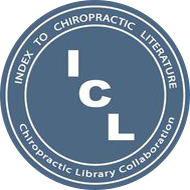| Objective: The objective of this study was to evaluate interrater reliability of the craniocervical flexion test (CCFT) on asymptomatic subjects. Methods: A cross-sectional repeated-measures study design was used. Thirty asymptomatic subjects (15 men and 15 women; mean age, 33.7 years; range, 22-48 years) were recruited for the study. Subjects were positioned in supine lying with a pneumatic pressure sensor of the pressure biofeedback unit placed under the neck. Subjects performed 3 trials of craniocervical flexion with each trial consisting of 5 incremental stages (22, 24, 26, 28, and 30 mm Hg) guided through feedback from the pressure dial of the pressure biofeedback unit. All the trials were scored simultaneously by 2 raters. The outcome measure was the activation score—the maximum pressure (above baseline 20 mm Hg) that was achieved and held in a steady manner for 10 seconds. Intraclass correlation coefficient (ICC 3,1) was analyzed using the 2 repeated scores out of 3 trials for either rater. Results: Interrater reliability (ICC) for the CCFT was 0.91 (95% confidence interval, 0.83-0.96). There was a reasonable agreement on the Bland-Altman plot confirming high reliability of the test. Conclusion: The study has shown high interrater reliability when 2 raters simultaneously scored the CCFT trials in asymptomatic individuals. This abstract is reproduced with the permission of the publisher; full text by subscription. Click on the above link and select a publisher from PubMed's LinkOut feature.
|
